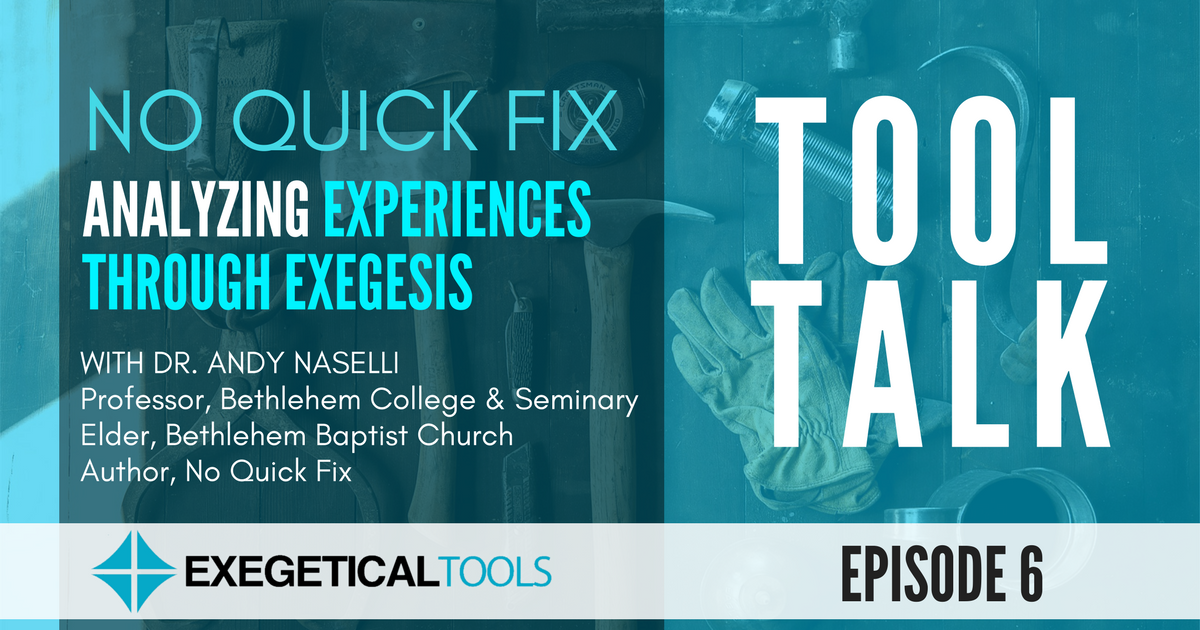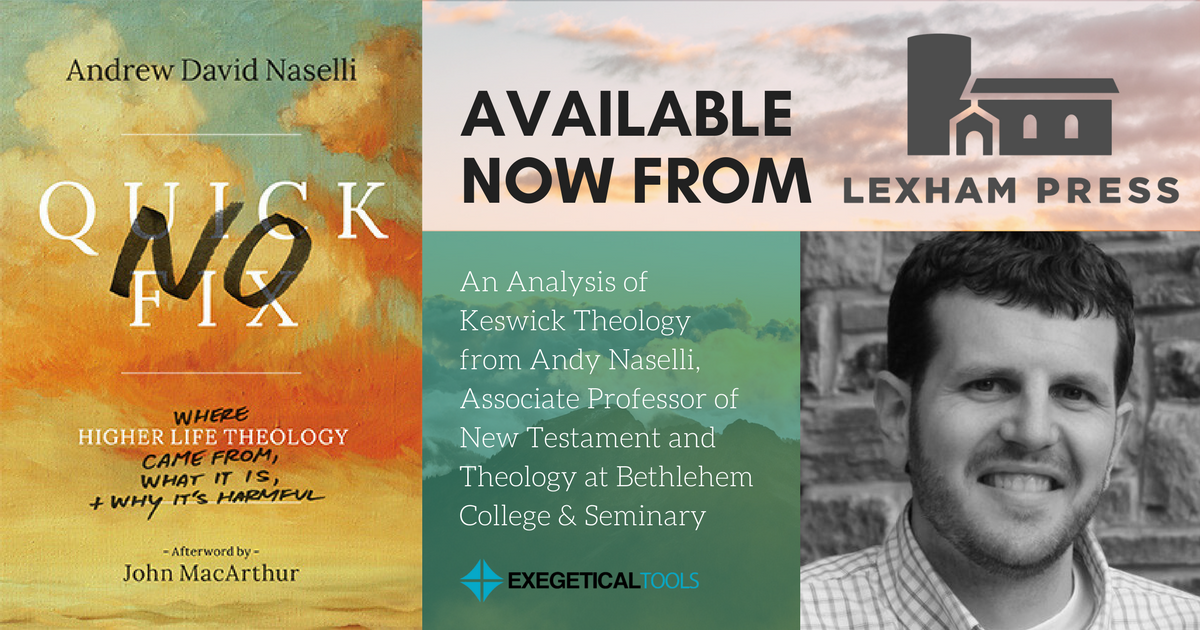
Listen to Andy Naselli discuss exegesis vs. experiences and No Quick Fix from Lexham Press. Click To Tweet
HEARD ON THIS EPISODE:
0:44 – What is “higher life theology”?
2:22 – Why is the distinction between time and aspect in aorist-tense verbs important for exegesis?
3:37 – Andy: “The whole thing [higher life theology] is built off of what I think is an exegetical fallacy.”
3:54 – How should we interpret and understand the words pneumatikos (“spiritual”) and sarkinos/sarkikos (“fleshly”) in 1 Corinthians 3:1-3? What bearing does this have on discipleship and sanctification?
6:00 – Andy: “If they’re a Christian, they still have the Spirit, but [Paul]’s saying, ‘Hey, you’re not living like who you are. You have the Spirit but you’re acting like – and the Greek word is hos – you’re acting as someone who doesn’t have the Spirit…’”
6:18 – If there aren’t two distinct stages of the Christian life, then what has happened in those experiential moments of “breakthrough” that many Christians experience?
8:40 – Andy: “Christians, if they’re benefitting from the means of grace, all of those means of grace are helpful, but there might be a point in time where it’s so memorable and significant, and they can misinterpret that within the framework of higher life theology.”
10:02 – What led Andy to write about “higher life theology” first as a dissertation and then as a popular-level book?
14:27 – How should one evaluate a doctrine from exegesis to various other disciplines of theology?
15:33 – Andy: “If you’re going to evaluate a historical teaching… your first step really should be to understand what they are teaching. And you need to be able to present what they teach in such a way that the people who hold those beliefs would say, ‘Yeah, that’s what we believe. You said it better than we could.’ That’s the goal: to present as clearly and accurately as possible the view you’re trying to analyze. You’ve got to understand before you analyze.”
19:26 – What factors should one keep in mind when choosing a dissertation topic?
22:24 – How has your testimony changed as your doctrine has changed?
25:59 – How would you counsel someone who felt they needed to be re-baptized after an experience of significant spiritual growth?

